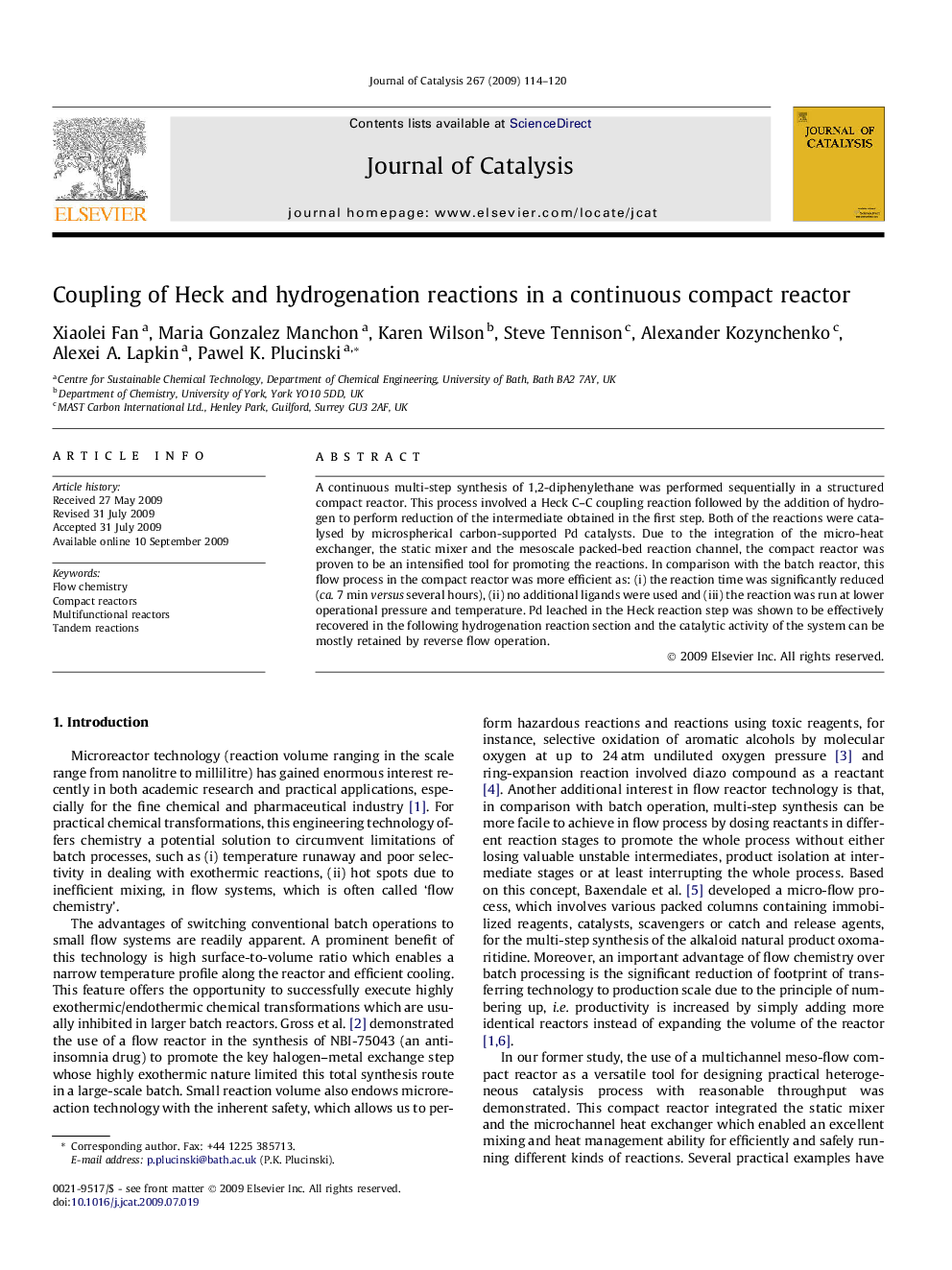| Article ID | Journal | Published Year | Pages | File Type |
|---|---|---|---|---|
| 62036 | Journal of Catalysis | 2009 | 7 Pages |
A continuous multi-step synthesis of 1,2-diphenylethane was performed sequentially in a structured compact reactor. This process involved a Heck C–C coupling reaction followed by the addition of hydrogen to perform reduction of the intermediate obtained in the first step. Both of the reactions were catalysed by microspherical carbon-supported Pd catalysts. Due to the integration of the micro-heat exchanger, the static mixer and the mesoscale packed-bed reaction channel, the compact reactor was proven to be an intensified tool for promoting the reactions. In comparison with the batch reactor, this flow process in the compact reactor was more efficient as: (i) the reaction time was significantly reduced (ca. 7 min versus several hours), (ii) no additional ligands were used and (iii) the reaction was run at lower operational pressure and temperature. Pd leached in the Heck reaction step was shown to be effectively recovered in the following hydrogenation reaction section and the catalytic activity of the system can be mostly retained by reverse flow operation.
Graphical abstractA continuous multi-step synthesis of 1,2-diphenylethane via a Heck C–C coupling reaction with subsequential hydrogenation of intermediate product was performed in a structured multichannel compact reactor packed with carbon-supported Pd catalysts. Due to the integration of the micro-heat exchanger, the static mixer and the mesoscale packed-bed reaction channel, the compact reactor was proven to be an excellent tool for this multi-step synthesis.Figure optionsDownload full-size imageDownload high-quality image (170 K)Download as PowerPoint slide
